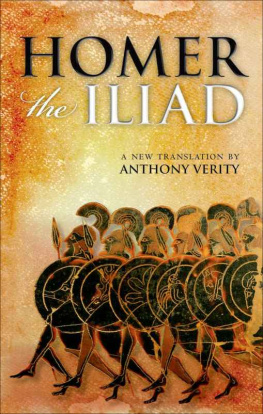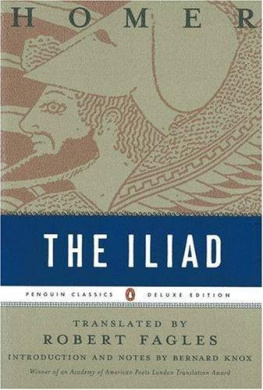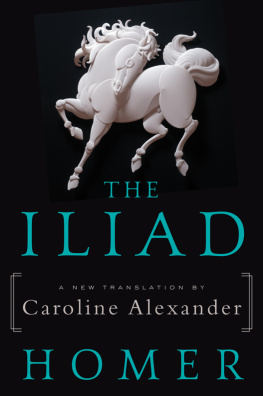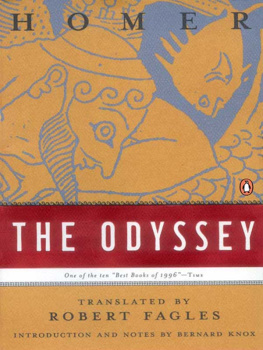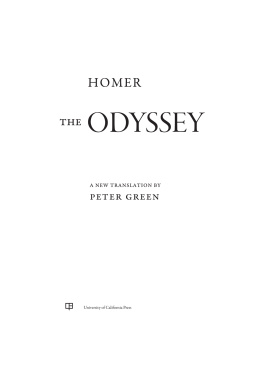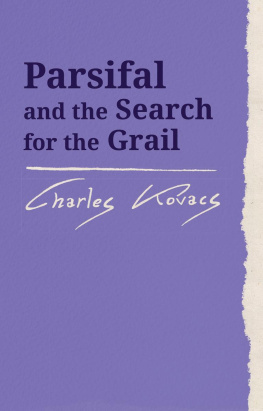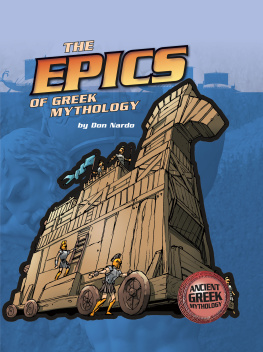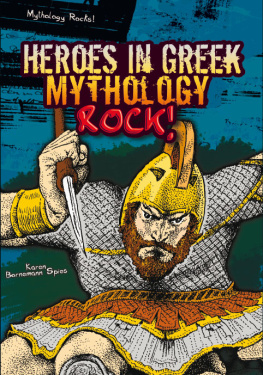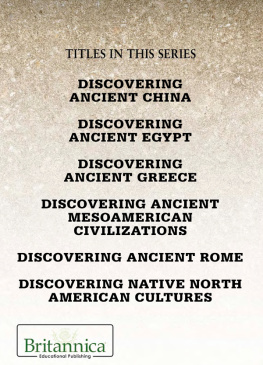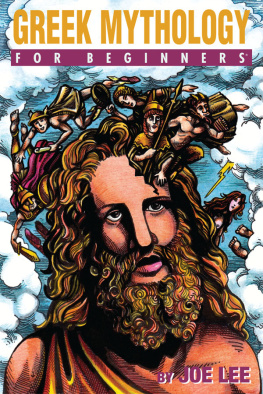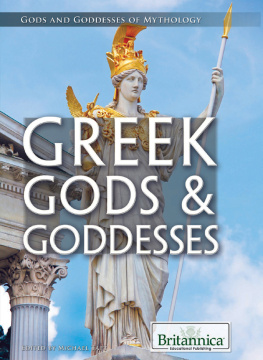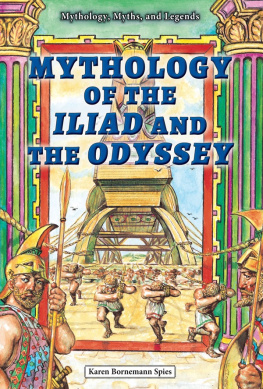Introduction
Before entering upon the many strange beliefs of the ancient Greeks, and the extraordinary number of gods they worshipped, we must first consider what kind of beings these divinities were.
In appearance, the gods were supposed to resemble mortals, whom, however, they far surpassed in beauty, grandeur, and strength; they were also more commanding in stature, height being considered by the Greeks an attribute of beauty in man or woman. They resembled human beings in their feelings and habits, intermarrying and having children, and requiring daily nourishment to recruit their strength, and refreshing sleep to restore their energies. Their blood, a bright ethereal fluid called Ichor, never engendered disease, and, when shed, had the power of producing new life.
The Greeks believed that the mental qualifications of their gods were of a much higher order than those of men, but nevertheless, as we shall see, they were not considered to be exempt from human passions, and we frequently behold them actuated by revenge, deceit, and jealousy. They, however, always punish the evil-doer, and visit with dire calamities any impious mortal who dares to neglect their worship or despise their rites. We often hear of them visiting mankind and partaking of their hospitality, and not unfrequently both gods and goddesses become attached to mortals, with whom they unite themselves, the offspring of these unions being called heroes or demi-gods, who were usually renowned for their great strength and courage. But although there were so many points of resemblance between gods and men, there remained the one great characteristic distinction, viz., that the gods enjoyed immortality. Still, they were not invulnerable, and we often hear of them being wounded, and suffering in consequence such exquisite torture that they have earnestly prayed to be deprived of their privilege of immortality.
The gods knew no limitation of time or space, being able to transport themselves to incredible distances with the speed of thought. They possessed the power of rendering themselves invisible at will, and could assume the forms of men or animals as it suited their convenience. They could also transform human beings into trees, stones, animals, &c., either as a punishment for their misdeeds, or as a means of protecting the individual, thus transformed, from impending danger. Their robes were like those worn by mortals, but were perfect in form and much finer in texture. Their weapons also resembled those used by mankind; we hear of spears, shields, helmets, bows and arrows, &c., being employed by the gods. Each deity possessed a beautiful chariot, which, drawn by horses or other animals of celestial breed, conveyed them rapidly over land and sea according to their pleasure. Most of these divinities lived on the summit of Mount Olympus, each possessing his or her individual habitation, and all meeting together on festive occasions in the council-chamber of the gods, where their banquets were enlivened by the sweet strains of Apollo's lyre, whilst the beautiful voices of the Muses poured forth their rich melodies to his harmonious accompaniment. Magnificent temples were erected to their honour, where they were worshipped with the greatest solemnity; rich gifts were presented to them, and animals, and indeed sometimes human beings, were sacrificed on their altars.
In the study of Greek mythology we meet with some curious, and what may at first sight appear unaccountable notions. Thus we hear of terrible giants hurling rocks, upheaving mountains, and raising earthquakes which engulf whole armies; these ideas, however, may be accounted for by the awful convulsions of nature, which were in operation in pre-historic times. Again, the daily recurring phenomena, which to us, who know them to be the result of certain well-ascertained laws of nature, are so familiar as to excite no remark, were, to the early Greeks, matter of grave speculation, and not unfrequently of alarm. For instance, when they heard the awful roar of thunder, and saw vivid flashes of lightning, accompanied by black clouds and torrents of rain, they believed that the great god of heaven was angry, and they trembled at his wrath. If the calm and tranquil sea became suddenly agitated, and the crested billows rose mountains high, dashing furiously against the rocks, and threatening destruction to all within their reach, the sea-god was supposed to be in a furious rage. When they beheld the sky glowing with the hues of coming day they thought that the goddess of the dawn, with rosy fingers, was drawing aside the dark veil of night, to allow her brother, the sun-god, to enter upon his brilliant career. Thus personifying all the powers of nature, this very imaginative and highly poetical nation beheld a divinity in every tree that grew, in every stream that flowed, in the bright beams of the glorious sun, and the clear, cold rays of the silvery moon; for them the whole universe lived and breathed, peopled by a thousand forms of grace and beauty.
The most important of these divinities may have been something more than the mere creations of an active and poetical imagination. They were possibly human beings who had so distinguished themselves in life by their preeminence over their fellow-mortals that after death they were deified by the people among whom they lived, and the poets touched with their magic wand the details of lives, which, in more prosaic times, would simply have been recorded as illustrious.
It is highly probable that the reputed actions of these deified beings were commemorated by bards, who, travelling from one state to another, celebrated their praise in song; it therefore becomes exceedingly difficult, nay almost impossible, to separate bare facts from the exaggerations which never fail to accompany oral traditions.
In order to exemplify this, let us suppose that Orpheus, the son of Apollo, so renowned for his extraordinary musical powers, had existed at the present day. We should no doubt have ranked him among the greatest of our musicians, and honoured him as such; but the Greeks, with their vivid imagination and poetic license, exaggerated his remarkable gifts, and attributed to his music supernatural influence over animate and inanimate nature. Thus we hear of wild beasts tamed, of mighty rivers arrested in their course, and of mountains being moved by the sweet tones of his voice. The theory here advanced may possibly prove useful in the future, in suggesting to the reader the probable basis of many of the extraordinary accounts we meet with in the study of classical mythology.
And now a few words will be necessary concerning the religious beliefs of the Romans. When the Greeks first settled in Italy they found in the country they colonized a mythology belonging to the Celtic inhabitants, which, according to the Greek custom of paying reverence to all gods, known or unknown, they readily adopted, selecting and appropriating those divinities which had the greatest affinity to their own, and thus they formed a religious belief which naturally bore the impress of its ancient Greek source. As the primitive Celts, however, were a less civilized people than the Greeks, their mythology was of a more barbarous character, and this circumstance, combined with the fact that the Romans were not gifted with the vivid imagination of their Greek neighbours, leaves its mark on the Roman mythology, which is far less fertile in fanciful conceits, and deficient in all those fairy-like stories and wonderfully poetic ideas which so strongly characterize that of the Greeks.


